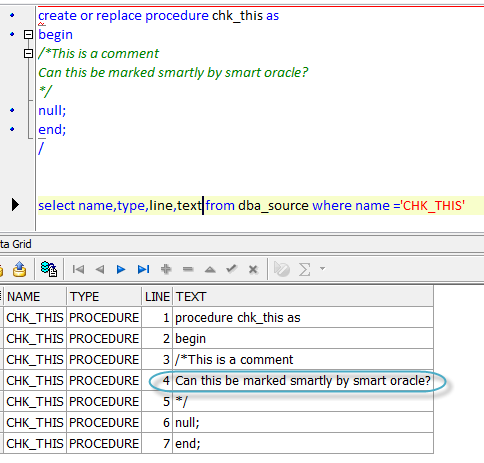Hi all,
Just a thought if Oracle can provide an additional column in *_source metadata views to indicate if that particular line is a comment or not..
e.g.:
As you see below the string "Can this be ......." is within enclosed comments. Would it be better to show that this is commented line..

Some check flag like this if provided by oracle it would be very easy to filter out those lines which we search for some string within code base.

Comments welcome!
Cheers,
Manik.